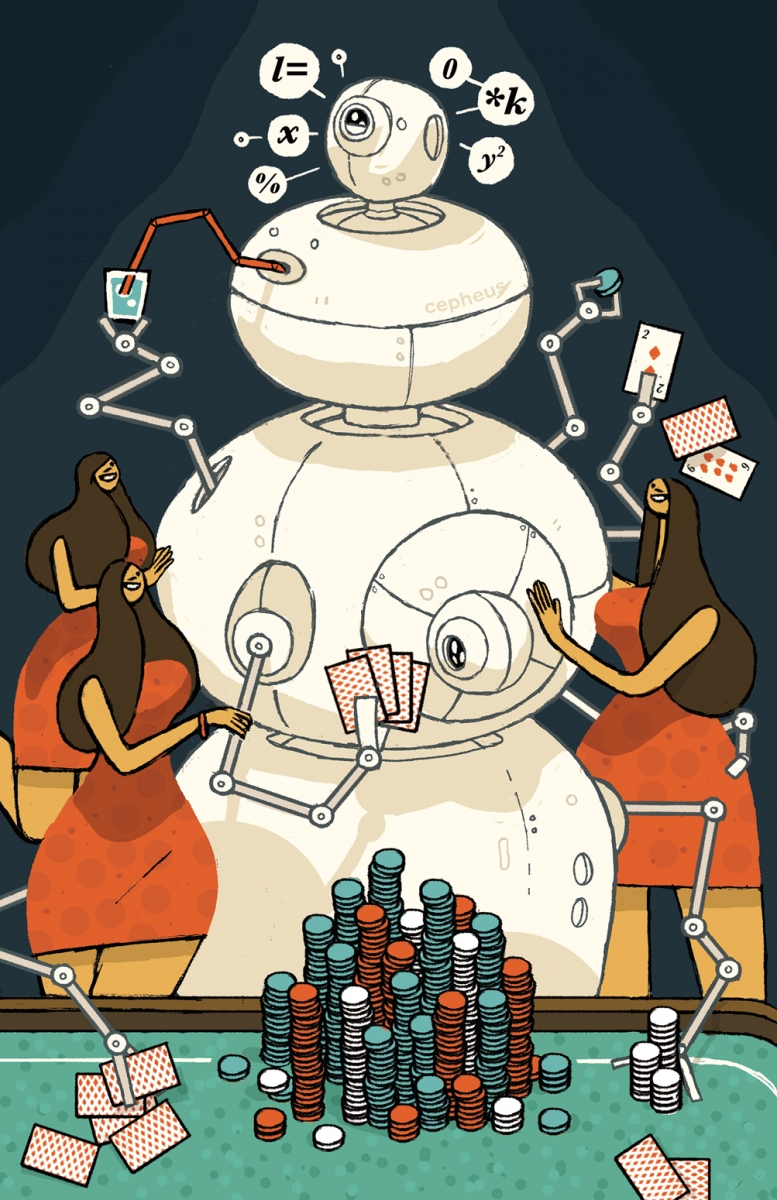When poker pro Bryce Paradis first played an early version of the University of Alberta computing science department’s poker-playing computer program, he was impressed. “It played differently from a human, but it was still good,” he recalls in a rapid clip. “Odd, but good.” Odd because it didn’t really understand how aggressively to play, or how to bluff in a way that a human player would believe.
Paradis would know: When he played poker professionally in the mid-2000s, he played a lot – thousands upon thousands of hands online in a day.
That experience gave Paradis insights into the game that few other human players have. “Because of all the poker I’ve played, my perspective is almost more computer-like,” he admits. “I’m a bit desensitized to variants, short-term luck and long-term luck.”
He realized that the program, then called Polaris, was playing “a good strategy. Even if it wasn’t what humans were doing, it was very similar.”
Polaris evolved into Cepheus, which, earlier this year, “solved” poker. The U of A research group, headed first by Jonathan Schaeffer and currently by Michael Bowling, and its project shone an international spotlight on the incredible artificial intelligence (AI) work incubating at the university. But it’s more than just games – Cepheus has shown us how the work that goes into solving games like poker and checkers has the ability to change how we solve other problems, in realms such as medicine and politics.
ANTE UP
In the late 1970s, Jonathan Schaeffer was a high-level chess player and undergraduate computer science student at the University of Toronto. That was when he happened to take a course on the then-nascent field of artificial intelligence.
At the time, AI research was dominated by those exploring “expert systems,” of which computer programs diagnosing medical disorders were the poster children. While Schaeffer could appreciate the importance of such work, it didn’t resonate with him. “I didn’t know the medical jargon,” he explains. “But I knew games. I decided to use games to demonstrate research into artificial intelligence.” He began to dream about developing a chess-playing computer program.
